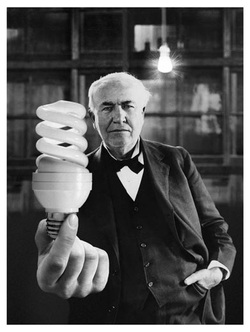Eleanor Rigby and the Epidemic
And God stepped out on space,
And he looked around and said,
“I’m lonely…
I’ll make me a world.”
-- God’s Trombones by James Weldon Johnson
Dear old and new friends,
Forty days is a long time to be all alone in the desert. Did Nazareth’s stone mason/carpenter after thirty some years of cramped close village life taste there the acidic bitterness of loneliness? Solitary confinement today is considered the harshest punishment, just a notch above capital punishment. So why did God’s Spirit drive him into the desert for forty days when today scientists equate the health effects of loneliness to that of smoking 22 cigarettes a day?
Modern loneliness doesn’t require retreating to a desert or being estranged from others. Paradoxically it is found in public gatherings, happy social events, Sunday church worship and hectic work sites. You can encounter it in loveless marriages, the staffs and residents of nursing homes and senior care facilities, in the homes of the elderly and infirm who live alone, and surprisingly by those with a microphone standing before large audiences. As John Lennon and Paul McCartney sang in the Beatles’ song Eleanor Rigby, “All the lonely people, where do they all come from?”
Loneliness is the new black plague in spite of television’s endless display of us being always happy people, smiling with perfect white teeth, selling this or that—but that isn’t us! America psychologists tell us we are in the midst of widespread psychological depression. This “epidemic,” according to psychologist Dr. Martin Seligman, has gone hand in hand with the loss of psychological and spiritual guidance. There is a nostalgic longing for the wise neighbor at whose kitchen table we once could confidently unload our inner feelings. People hunger for someone who will listen to them with no personal benefit except to wish them well. Ironically, flooded with an array of hi-tech message devices, people cannot find anyone willing to genuinely listen with only his or her welfare in mind.
Looking for a personal mission in life requiring no special education? Consider becoming a listener. Sounds simple, but it isn’t. It requires not giving advice (which we all love to do), not judging and simply the ironclad patience of listening. You can minister anywhere. When encountering anyone—stranger or friend— carefully look at her/his eyes for the dullness of loneness’s lack of joy. Then say a few words invested with sincere caring to them with the hope of rescuing them at least for a brief time of being frozen in isolation.
A Spirituality of Solitude
Seriously consider adding to your spiritual practices time in solitude. Turn off all your hi-tech gadgets and phone, and just be alone in silence. Self-imposed isolation is frightening. So let the Spirit “drive” you into it confident that it is a holy place. The Spirit drove Jesus into the desert for 40 days, and the same Spirit drove Buddha to a Bo Tree, there to sit alone for an extended period of intense contemplation. For both of them their solitary times ended with enlightenment, and each began to teach and minister to others. What gift is hidden in our dread of silent solitude that we try to fill up with music or worthless entertainment. Is it the same gift that Buddha and Jesus discovered? Neither spoke of what it was, but their lives loudly proclaimed it.
Perhaps Mark Twain may have given us a hint in his observation, “Everyone is a moon, and has a dark side which he never shows to anyone….” (And I will add…or to themselves.) Could it be if truly sufficient time spent, not counted in minutes per day but in a true solitude, one is liberated from life’ s distracting three-ring circus of frivolous triviality so that very slowly one’s moon turns its dark side towards us? Once that happens its darkness and all that is secreted in it could be lovingly embraced and converted.
Or in their long solitude did Buddha and Jesus slowly descended down into their underworld of the Unconscious, symbolized by the dark side of the moon? We each have such a subterranean consciousness which is not some reservoir of animal drives; rather it is the unexamined reside of our earliest training and feelings about ourselves and the world. It is unexamined since as small children we weren’t old enough to make judgments of the behaviors of our parents or the influences of our home environment that were influencing us. Yet in each of us that unconscious contains the deep motives of our adult behavior and the drives that determine our conduct. So we are blessed when we attempt to confront that hidden inner consciousness that can lead to conversion, real growth and the self-assurance to become whom we were destined to be.



 RSS Feed
RSS Feed